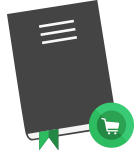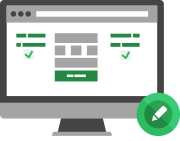Strategic Approach to Procurement and Logistics Processes

Introduction
This training course aims at helping you improve your skills in implementing procurement and logistics based strategies, supporting you in order to develop a strategic approach to performance in procurement and logistics activities and to expand your toolkit of practical procurement tools and techniques.
It also provides you with an overview of the key performance management concepts and tools adapted to the specific needs of the Procurement and Logistics department. The main topics focus on defining and implementing a strategic plan, as well as assessing the different types and models of supply chains.
3 Key business benefits
- Enhance the logistics and procurement cycle by analyzing methods of increasing supply chains efficiency;
- Improve performance in logistics and procurement by developing clear objectives and linking them to appropriate KPIs.
- Align logistics and procurement systems and processes with organizational strategy.
5 Benefits
- Attain a higher performance by understanding the performance management system in the Procurement and Logistics department;
- Ensure the compliance of your procurement and logistics activity with high international standards;
- Establish better supplier’s relationships by implementing a better process of selection and contracting;
- Enhance the quality of your warehousing and distribution processes by reviewing and implementing relevant best practices;
- Expand your business network by gaining access to a world-wide community of procurement and logistics professionals.
Learning objectives
- Understand the basic fundamentals of the procurement and logistics cycle;
- Describe the issues associated with developing a procurement and logistics strategy;
- Identify and apply procurement and logistics tools and techniques to contribute to an effective management of the supply chain functions;
- Detect and solve issues to allow alignment of systems, capabilities and processes with strategic objectives;
- Select the right KPIs to measure performance, outcomes and results.
Day 1
Procurement and logistics at strategic level - definition, role and functions
- Expectations regarding the problems met in practice;
- The role of purchasing or positioning activities;
- Types and functions of procurement and logistics activities;
- Proactivity in purchasing and inter-departmental purchases;
- Activity: Clarify the objective of purchases - needs, service and assets.
The organization and structure of the Procurement and Logistics department
- The activity of the Procurement and Logistics department;
- Centralized and decentralized activities;
- Position within the organization and relations with other departments;
- National and international cooperation – inter-departmental purchases;
- Activity: Analyze your own Procurement and Logistics department – structure and organization method.
Strategic development of procurement and logistics
- Introduction to systematic thinking;
- Procurement and logistics activity development;
- Implementation of the strategic plan;
- Strategy monitoring and evaluation;
- Activity: Discuss best practices in Procurement and Logistics.
The strategy of Procurement and Logistics departments
- Activity: Create the strategy of your own department;
- Strategy creation process;
- Implementation method;
- The use of operational templates;
- Activity: Present the strategic plans.
Day 2
Selecting and contracting suppliers
- Selection criteria for suppliers;
- Standardization of the supplier selection process;
- Key terms in agreements and contracts: price versus cost, obligations and penalties;
- Quality insurance system and suppliers’ audit.
Suppliers’ relationship management - work tools
- Suppliers performance evaluation;
- The characteristics of an “excellent supplier”;
- Relational models: COX and BENSAO;
- The relational models in practice;
- Purpose, methods and persons involved in negotiation;
- Activity: Formulate a scorecard for monitoring suppliers’ performance.
Procurement and distribution chains logistics
- Types and models of Procurement chains;
- Procurement chains’ efficiency;
- Distribution management and logistic optimization;
- Evaluation and monitoring of logistic activities using KPIs;
- Activity: Define a set of KPIs for Procurement and Logistics.
Applying the knowledge accumulated during the course
- 10 tips for improving the department’s performance;
- Key success factors in optimizing activities;
- Essential templates in practice;
- Re-evaluation of course materials and conclusions;
- Transfer of accumulated knowledge within organizations.
Online Purchasing Instructions


Choose a product and add it to the cart

Add more products or proceed to checkout

Fill in all the information and finalize the order

Check your email for confirmation and details
